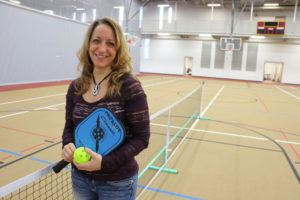 In the past six months, we have had an extraordinary number of pickleball players coming into our store seeking advice about tennis elbow. At first, we thought it was a coincidence. But then we investigated further and started asking people where they are playing.
In the past six months, we have had an extraordinary number of pickleball players coming into our store seeking advice about tennis elbow. At first, we thought it was a coincidence. But then we investigated further and started asking people where they are playing.
It turns out, nearly all of these injured people play at the same southeast Calgary community association. Most are new pickleball players and all have been taught to hold their paddles incorrectly by the same pickleball instructor. Quite clearly, therefore, the building blocks for a class action lawsuit are being laid one student at a time which could conceivably damage the reputation and resources of the community association.
Is it negligent to hire an uncertified instructor to teach pickleball lessons at your community centre? It might be, especially if what he teaches his students actually causes harm to them. In this case, we are talking about more than 100 students already this year the majority of whom have suffered injury and have been temporarily at least partially disabled because they are doing exactly what their instructor taught them to do.
Should somebody decide to sue, a judge could easily decide to share the blame (and the punishment) between the instructor who did the damage and the facility who allowed it to happen.
Does it matter that the instructor is a volunteer? No. It does not. The amount he is being paid is irrelevant. What matters is that this individual is being put forth as an expert by the community association and that players are being advised to do what he is teaching them. The fact that they are suffering injury as a result of this “expert advice” could be construed as negligence.
Unfortunately, this practice is all too common. The enthusiasts who promote pickleball as easy to learn often fail to understand the difference between an adequately insured coach who meets standards set by the National Coaching Certification Program and some guy who is good at pickleball and is willing to teach for free.
A real coach, somebody who has been properly trained to teach people how to play racquet sports, is likely to recognize an injury in the making. He or she will not teach a student how to do something just because that is they way they do it themselves. A real coach takes the health and safety of his/her students into consideration and finds ways to get students to do things that may not come naturally to them.
In other words, a real coach recognizes that pickleball is not necessarily easy for everyone and that injuries can and do occur on pickleball courts much more often than pickleball enthusiasts care to admit.
Every community association, big or small, must consider the risks associated with hiring uncertified and uninsured pickleball instructors. As with tennis instructors, community boards should demand proof of certification and proof of insurance before ever agreeing to hire them. Even volunteers should be subject to this level of scrutiny. Otherwise, the board may find itself on the wrong end of a class action lawsuit that could easily have been avoided.
Comments are closed.